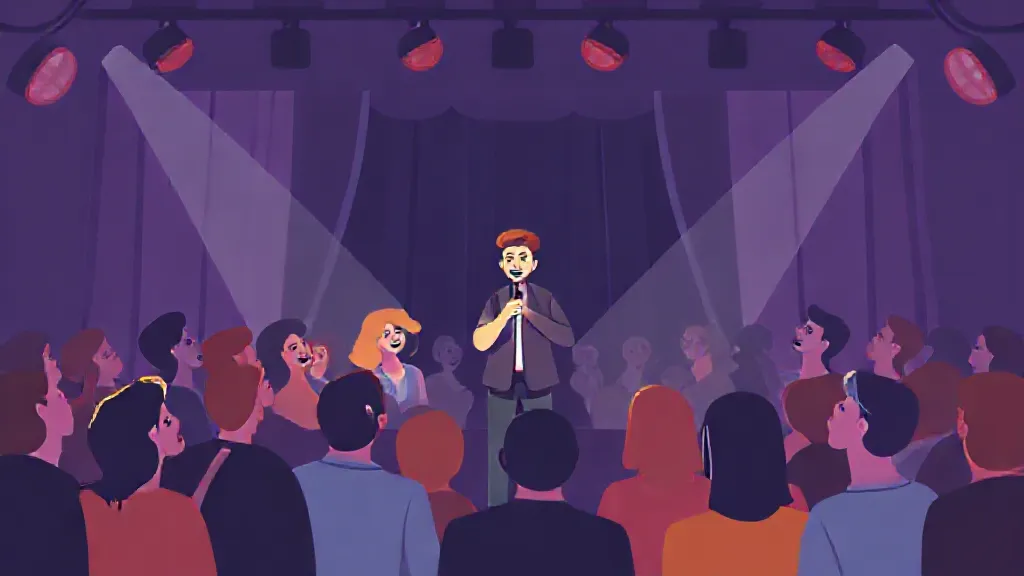In recent years, stand-up comedians have surged in popularity, becoming cultural icons and household names. This article delves into the factors contributing to this phenomenon, examining the evolution of stand-up comedy, its societal relevance, and the impact of digital platforms on its accessibility and reach.
The Evolution of Stand-Up Comedy
Stand-up comedy has a rich history that dates back to vaudeville and minstrel shows in the late 19th and early 20th centuries.
Initially, comedians performed in theaters, delivering monologues that often reflected social norms and issues of their time. The genre evolved through the decades, with influential figures like Lenny Bruce and Richard Pryor pushing boundaries and introducing more personal storytelling and social critique into their routines. Today, stand-up has transformed into a diverse art form that encompasses various styles and themes, appealing to a wide audience.
The Role of Social Media in Comedy's Popularity
The advent of social media has played a pivotal role in the rise of stand-up comedians. Platforms like Instagram, TikTok, and YouTube allow comedians to share snippets of their performances, reach wider audiences, and engage with fans directly. This democratization of content creation means that anyone with a smartphone can showcase their comedic talents, leading to the discovery of new voices and styles.
Viral videos and memes often propel comedians into the spotlight, making them overnight sensations and increasing their visibility in the entertainment industry.
Comedy as a Reflection of Society
Stand-up comedy serves as a mirror to society, reflecting cultural norms, political climates, and social issues. Comedians often tackle sensitive subjects, using humor as a tool for critique and discussion.
In times of uncertainty or crisis, audiences turn to comedy for relief and perspective. The ability of comedians to address complex topics with humor allows them to connect with audiences on a deeper level, fostering a sense of community and shared experience.
The Impact of Streaming Services on Stand-Up
The rise of streaming services like Netflix, HBO Max, and Amazon Prime has revolutionized how stand-up comedy is consumed.
These platforms have invested heavily in comedy specials, showcasing both established and emerging comedians. This accessibility has introduced a diverse range of comedic voices to global audiences, breaking geographical barriers and allowing viewers to explore different styles and cultural perspectives. The success of these specials often leads to increased ticket sales for live performances, further boosting the careers of comedians.
Live Performances: The Heart of Stand-Up
Despite the digital age's influence, live performances remain the cornerstone of stand-up comedy. The energy of a live audience and the immediacy of performance create a unique atmosphere that cannot be replicated online. Comedians thrive on audience reactions, using improvisation and spontaneity to enhance their routines.
The return of live events post-pandemic has rekindled the excitement for in-person comedy, drawing crowds eager for shared laughter and connection.
Diversity and Representation in Comedy
The stand-up comedy scene has become increasingly diverse, with comedians from various backgrounds sharing their unique perspectives. This shift has broadened the genre, allowing for a richer tapestry of humor that resonates with different audiences.
Representation matters in comedy, as it not only empowers underrepresented voices but also fosters understanding and empathy among viewers. Comedians like Ali Wong, Hasan Minhaj, and Tiffany Haddish have gained popularity by sharing their cultural experiences, making comedy more relatable to a wider audience.
The Therapeutic Power of Laughter
In a world marked by stress and anxiety, laughter has proven to be a powerful coping mechanism.
Stand-up comedy offers an escape, allowing audiences to momentarily forget their troubles and find joy in shared experiences. Comedians often share their struggles and vulnerabilities, creating a bond with their audience. This therapeutic aspect of comedy has contributed to its rising popularity, as people seek comfort and connection in challenging times.
Conclusion: The Future of Stand-Up Comedy
As stand-up comedy continues to evolve, its popularity shows no signs of waning. The combination of social media, streaming platforms, and live performances ensures that comedians can reach audiences in innovative ways. The genre's ability to adapt to societal changes and address pressing issues keeps it relevant and engaging.
With a new generation of comedians emerging, the future of stand-up comedy promises to be as dynamic and exciting as its past.
